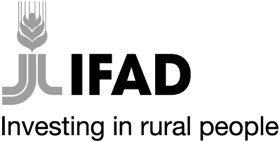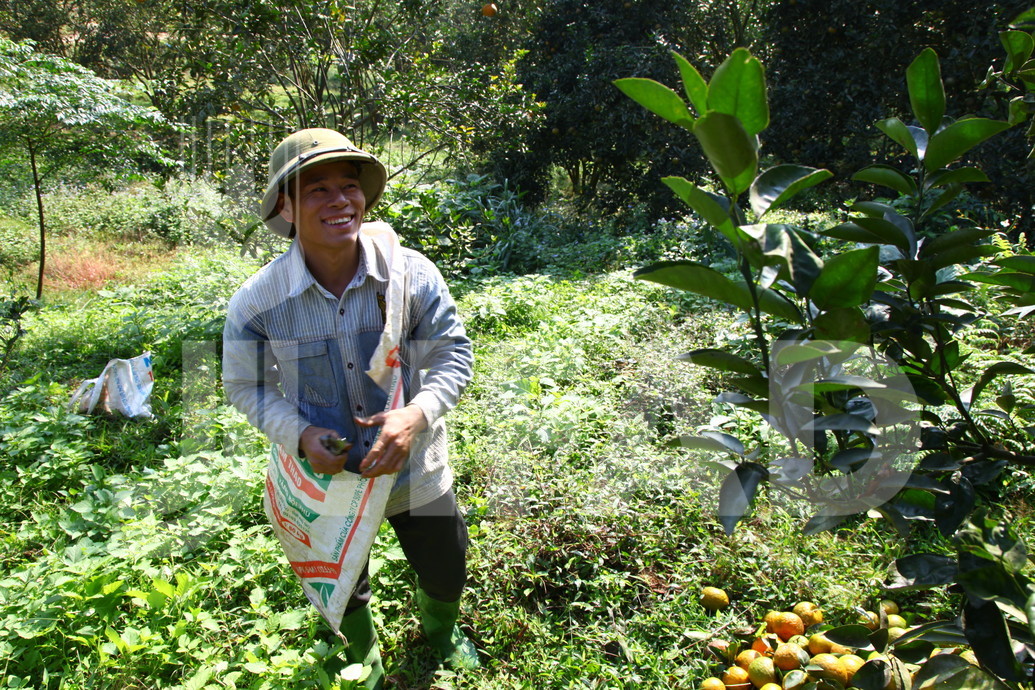| ID: | 60929 |
|---|---|
| Country: | Viet Nam |
| Title: | Viet Nam - Agriculture, Farmers and Rural Areas Support Project in the Tuyen Quang, Ninh, Thuan and Gia Lai Provinces (TNSP) - Dec 2018 |
| Description: |
Luong Van Hung, 27, is a smallholder farmer and member of the orange farmers’ cooperative in Thuoc Thuong village. He switched form rice farming to orange farming 10 years ago. Farming rice only earned him enough money to cover basic living expenses. By cultivating oranges, he can earn more money. He owns one hectare of land. He has received training to learn to grow certified safe and organic oranges. “Before, the weather was a bit cooler, now it is hotter so we need to use more water and cut the grass around the trees to keep the soil moist and keep the pests away. We are earning enough money with the oranges to pay for our living expenses and to reinvest into the activity, our output is stable. We are looking for ways to reach larger markets, without losing money on transport costs.” “I am proud to be a famer, this is my family’s land, I would not sell it. I use the land to make money. I am the first one in my family that wanted to switch from rice and corn to high-value oranges. With my low-level of education, farming is still good to make an income.” Orange production area in Thuoc Thuong village, Tan Thanh commune, Ham Yen district. This area was previously used to cultivate rice. Five years ago, it was converted to an orange grove. The soil, altitude and weather patterns make this area better suited for oranges and grapefruits. Orange trees require less water than rice fields. In the dry season, farmers can water the trees once a month. From August to April (rainy season), the trees do not need additional water. The price for high-quality oranges is much higher than for rice. The caveat is that harvesting oranges on these steep slopes is physically demanding and so dependent on younger farmers to take on the task. The IFAD-supported project ran from 2011 to 2016 and reached 73,800 poor rural households living in 117 poor rural communes in Tuyen Quang, Gia Lai and Ninh Thuan Provinces. The goal was to improve the overall quality of life by increasing household incomes and improving household food security and nutrition. This was done by helping poor rural people to participate in suitable on-farm and off-farm economic activities, increasing smallholder producers’ access to markets and by connecting private agribusiness investors to rural producers. In Tuyen Quan the main agricultural products that the project promoted were: tea, arrowroot, pig, fish, goat, peanut, alcohol and chicken. In Gia Lai they were: chicken, maize, coffee, goat, cow and pig and in Ninh Thuan the products were onion, apple, sugarcane, garlic, goat, asparagus, and cow. Households that participated in the improved commercialization of agricultural production, otherwise known as “value chains”, have increased their incomes more than the target 25 per cent by the end of the project. |
| Size: | 3.85 MB; 2784 x 1856 pixels; 236 x 157 mm (print at 300 DPI); 737 x 491 mm (screen at 96 DPI); |
| Show more details: | Susan Beccio |
| Copyright: | ©IFAD/Susan Beccio |
| Categories: | none |
| URL: | www.ifad.org |

